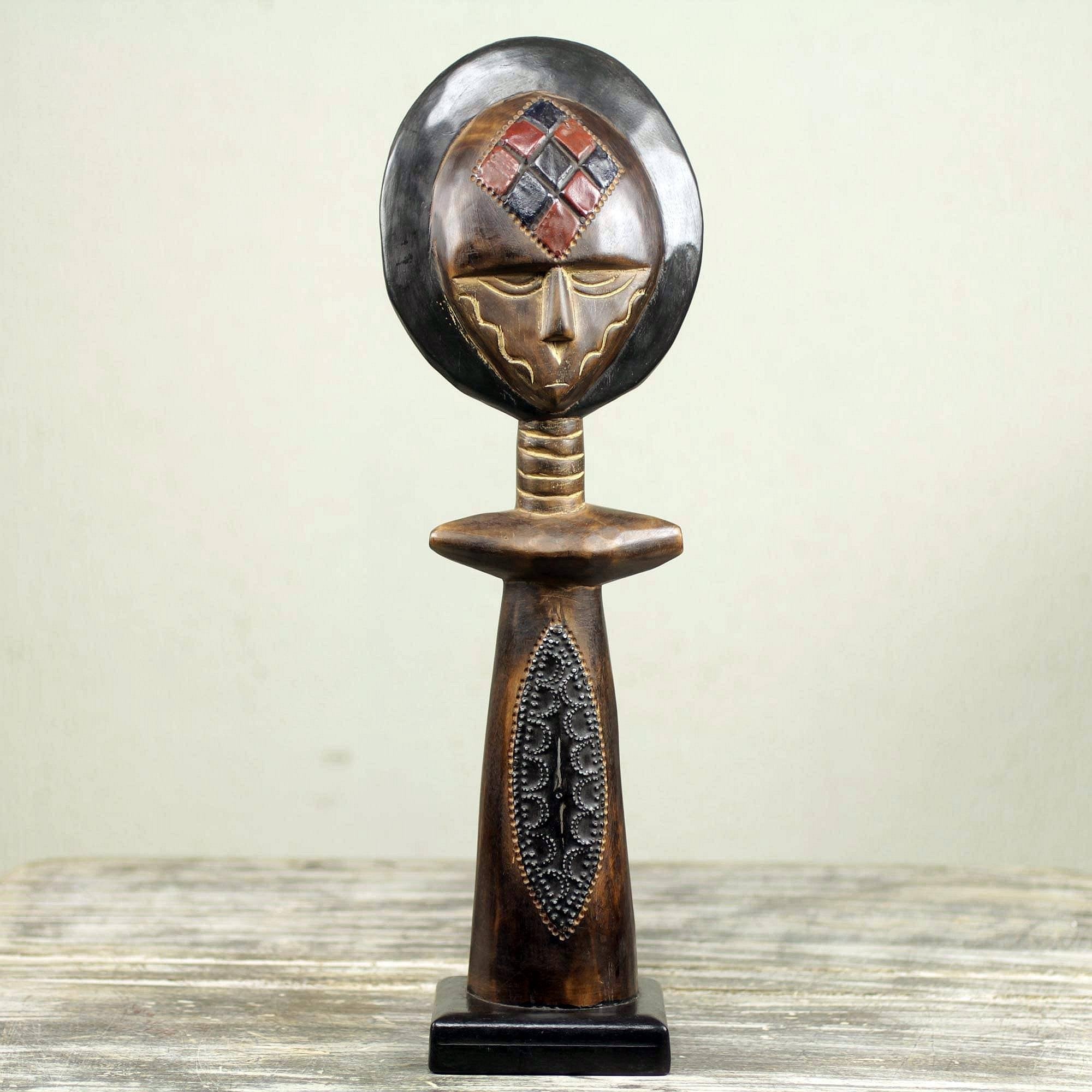Dzigbordi: Fertility Doll
A hand-carved wooden African fertility doll also known as “Akuaba” in the Ashanti region of Ghana, West Africa. Fertility dolls have long been associated with femininity, fertility, and motherhood. Young women frequently carry fertility dolls on their back like a child in hopes that it helps them to conceive. Pregnant women also have them in hopes that it ensures they have a safe delivery and healthy and happy child. In modern times, especially in the west, they have come to be symbols of good luck.
The fertility doll also has a similar shape similar to that of the Egyptian Ankh, a symbol of life and the Egyptian Djed which is a symbol associated with Ausar/Osiris. The large head on the fertility doll is symbolic of a woman’s womb. Different cultures in Africa have fertility dolls of varied designs. The most popular and well-known fertility dolls are those of the Fanti ethnic group.
This fertility doll measures approximately 17.25 inches (height), 5.5 inches (width) and 3.9 inches (depth). It is made out of Sese Wood and aluminum. Weighs approximately 1.8 lbs. The artisan Rita Zakour named this fertility doll Dzigbordi which means “Patience”.
Handcrafted and imported from Ghana, your purchase helps support local Ghanaian artisans, their family and the community. Each item is handmade so there may be slight and subtle differences in size, color, and pattern. These slight differences are what makes each African Mask unique and a true work of art.














